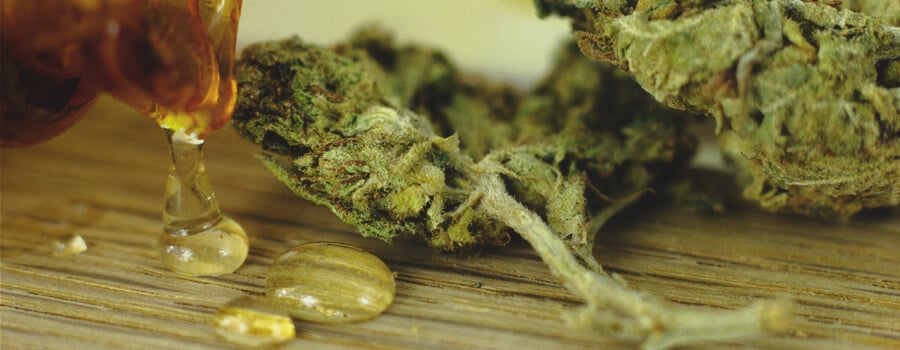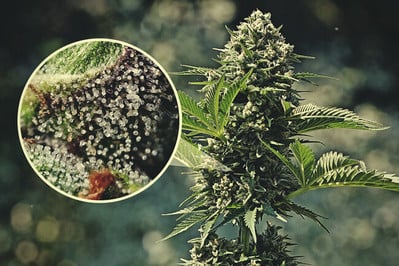.

CBD and Seasonal Affective Disorder
The winter months bring shorter days and far less sunlight, factors that can contribute toward seasonal affective disorder, also known as SAD. Researchers are now testing CBD against characteristic symptoms of the condition.
Winter brings shorter days, less sunlight exposure, and colder weather. Some people are huge lovers of winter and adore the nostalgia of getting cosy in some warm blankets whilst drinking hot beverages. However, these environmental changes can deeply affect some people in a negative way, leading to decreased mood, feelings of sadness, and depression. This phenomenon is known as seasonal affective disorder (SAD) and is recognised as a major depressive disorder. SAD can be treated via several lifestyle factors, such as a healthy diet, exercise, and regular sleep. Other patients benefit from taking antidepressant medication. Compounds found within the cannabis plant are also being investigated for their potential effect on the symptoms associated with SAD.
WHAT CAUSES SEASONAL AFFECTIVE DISORDER?
The precise cause of SAD is so far unknown, yet is believed to be partially caused by reduced sunlight exposure. Sunlight plays a critical role in health, from enabling the synthesis of vitamin D to dictating the circadian rhythm or sleep-wake cycle. This lack of sunlight is thought to prevent a part of the brain known as the hypothalamus from working properly. The hypothalamus is a gland that plays a crucial role within the nervous and endocrine systems, and is involved in regulating body temperature and the release of hormones.
A lack of hypothalamus function may affect the production of melatonin, a hormone released by the pineal gland to lull the body to sleep. Melatonin production is suppressed by blue light entering the eyes, and a lack of light leads to increased production of the hormone. Therefore, people with SAD will experience raised levels of melatonin during the darker months of the year, resulting in feeling tired more often. This alteration of hypothalamus function may also affect serotonin production, a neurotransmitter that plays an important role in mood, appetite, and sleep regulation. Less sunlight can lead to less-than-optimal serotonin synthesis, which can contribute to gloomy mood and depression.

SYMPTOMS OF SEASONAL AFFECTIVE DISORDER
SAD can manifest in a wide range of symptoms, including fatigue, lack of concentration, feelings of hopelessness, lethargy, weight gain, feelings of unhappiness, reduced libido, less desire to be sociable, and increased irritability. SAD isn't just confined to the winter months; people who experience the disorder in the summer months can experience symptoms such as weight loss, restlessness, sleep issues, agitation, and decreased appetite.
CANNABIS AND SEASONAL AFFECTIVE DISORDER: THE POTENTIAL OF CBD
Cannabidiol is a non-psychoactive cannabinoid produced within the trichomes of the cannabis plant. CBD affects the body's endocannabinoid system, a system of receptor sites found throughout many different cell types within the body. This system has a profound effect on many other bodily systems and plays a large role in many functions.
A 2010 paper[1] published in the _Journal of Psychopharmacology_ tested the effects of CBD in cases of generalised social anxiety disorder. Subjects underwent a simulated public speaking event after orally taking either 400mg CBD or a placebo. This study marks a significant milestone for CBD and anxiety research in humans. But much more investigation is needed before conclusions can be made.

Researchers from Colorado are also starting to look into the relationship between CBD and sleep[2]. So far, they’ve tested CBD oil in cases of anxiety and insomnia associated with post-traumatic stress disorder.
HOW TO TAKE CBD
CBD is available in a wide range of forms to fit the preference and lifestyle of each user. CBD-rich cannabis flowers can be used by those who prefer to smoke and vape raw material to deliver high quantities of CBD alongside very low levels of the psychoactive cannabinoid THC. High-potency oils and tinctures can be taken orally and sublingually, and can be added to many different foods and beverages. Capsules are also an easy option to fit into an existing supplement regimen.
- SAGE Journals: Your gateway to world-class journal research https://journals.sagepub.com
- Effectiveness of Cannabidiol Oil for Pediatric Anxiety and Insomnia as Part of Posttraumatic Stress Disorder: A Case Report https://www.ncbi.nlm.nih.gov











































